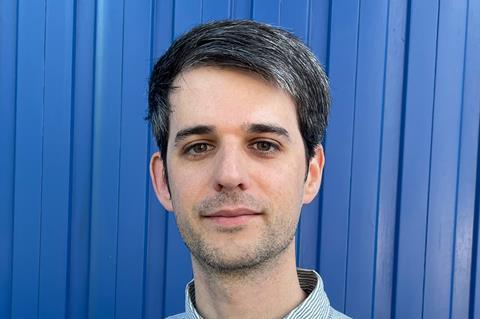
A pipeline of local talent, a rise in public support and one of Europe’s most attractive financial incentives are fuelling the film industry in the Basque Country, resulting in an ambitious slate of projects ready to take on the international market.
Incentives have been key to making the Spanish region a prime destination for international productions. Recent visitors include revenge thriller Kill Jackie, starring Catherine Zeta-Jones and produced by Prime Video, Fremantle and Steel Springs Pictures, which recently wrapped principal photography. Local production has also been boosted by tax deductions of up to 60%, with an extra 10% for projects in the Basque language.
Marian Fernandez Pascal of production outfit Txintxua identifies the transformative factors as “a tradition of filmmaking, local talent, and a diversification of sources of financing — from public funds to incentives. We also have the support of public broadcasters, platforms and private investors”.
San Seb showcase

The vitality of the Basque industry is evident throughout this year’s selection at San Sebastian International Film Festival (SSIFF). Competition titles from Basque talents include Jose Mari Goenaga and Aitor Arregi’s Basque-language Maspalomas, Alauda Ruiz de Azúa’s Sundays and the Basque co-production Los Tigres by Alberto Rodriguez.
Further Basque-language titles in official selection are Asier Altuna’s period drama Karmele and Koldo Almandoz’s thriller miniseries Sky Mouths, both playing as special screenings not in competition.
The festival’s sidebars further highlight the diversity of Basque talent. Aro Berria, the debut from Irati Gorostidi Agirretxe, is being showcased in New Directors, and Cannes 2025 Un Certain Regard winner The Mysterious Gaze Of The Flamingo is playing in Horizontes Latinos. The latter, a Chilean production directed by Diego Cespedes, is minority co-produced by local outfit Irusoin, which also produced Maspalomas.

“This year’s strong SSIFF selection is a result of the local pool of talent and the public support behind them,” asserts producer Ander Barinaga-Rementeria of Irusoin. “Not only for Basque productions, but also films made in the Basque language. It goes to show that if public support is there, productions find their audience.”
“I don’t recall an edition of the festival with so many Basque productions,” says Txintxua’s Pascal, which produced Karmele and Sky Mouths.
It was difficult to raise the finance for ambitious period project Karmele, a romantic drama about a politically engaged nurse exiled to France during the Spanish Civil War. “We couldn’t have made it without the incentives as part of the film’s financing structure, and the same goes for Sky Mouths,” says Pascal.
Beyond San Sebastian, there is a strong pipeline of Basque productions. Paul Urkijo Alijo’s Gaua, a female-led story set in the 17th century, will premiere at Sitges Film Festival in October. The Harvester, directed by David Perez Sañudo, is an 1870s-set serial-killer thriller scheduled for a 2026 release, with Buena Vista International handling distribution in Spain, the company’s first film in the Basque language.
“It is the type of project that reflects the new production muscle we now have in the Basque Country,” says producer Kevin Iglesias of Amania Films, which produced The Harvester with La Claqueta PC in Spain and Belgium’s Beluga Tree.
Animation is also thriving in the region. Decorado, Alberto Vazquez’s tale of a mouse experiencing an existential midlife crisis, is making its international premiere at Fantastic Fest in the US in September.
“The Basque Country has become very competitive in animation, not only in the number and quality of productions but also because of the availability of bigger budgets and the continuity with our crews,” says producer Ivan Miñambres of UniKo, which is producing Decorado with Abano Produciòns, The Glow Animation Studio in Spain and Sardinha em Lata in Portugal.
Power of incentives
International co-productions are also on the rise. “Incentives have been key to speeding up the financing stages and enabling projects that otherwise would have remained in development,” says Egoitz Rodriguez Olea of production banner Baleuko. The company is in the financing stage for Ana No, the second feature directed by Paz Vega (Rita), co-produced with Italy’s Ombre Rosse Film Production.
There is also a strong group of rising filmmakers working on their first feature projects. They include Nerea Castro with Animal Song, a fantastical coming-of-age drama about a young woman who is part-human, part-bird. CSC Films and Turanga Films are producing.
















![[L-R]: Amanda Villavieja, Laia Casanovas, Yasmina Praderas](https://d1nslcd7m2225b.cloudfront.net/Pictures/274x183/6/4/1/1471641_pxl_20251224_103354743_618426_crop.jpg)












